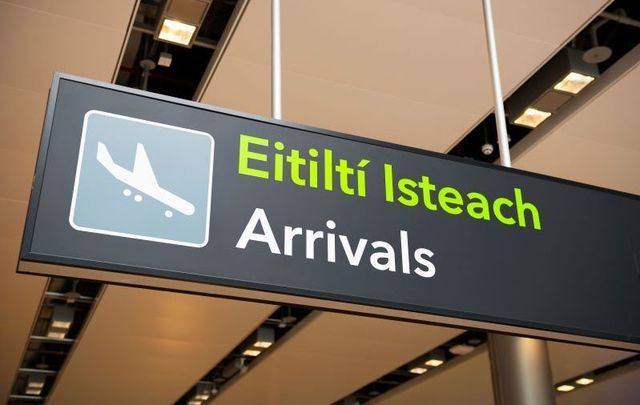Ireland, not a part of the Schengen Area, will not be subject to today's official recommendation from the European Commission and is set to continue with its own set of travel restrictions
The European Union today published which countries it has agreed to reopen travel with in the wake of COVID-19 restrictions, but Ireland is not be bound to the official recommendation.
In March, the European Commission recommended a “temporary restriction of non-essential travel from third countries into the EU+ area" as coronavirus began to take hold internationally.
Ireland and the UK, however, are not a part of the "EU+ area," which includes all Schengen Member States (including Bulgaria, Croatia, Cyprus, and Romania), as well as the four Schengen Associated States. Ireland nor the UK is part of the Schengen Area.
The new Recommendation published today, June 30, lifts some of the travel restrictions that have been in place since March. The published Recommendation notes that Ireland is “not taking part in its adoption and is not bound by it or subject to its application.”
Ireland and the UK, if they decide to align, will become included in the recommendation.
The Recommendation has named the following countries that will be permitted to travel to the EU area + from tomorrow, July 1:
- Algeria
- Australia
- Canada
- Georgia
- Japan
- Montenegro
- Morocco
- New Zealand
- Rwanda
- Serbia
- South Korea
- Thailand
- Tunisia
- Uruguay
- China, subject to confirmation of reciprocity
The following criteria were used in selecting which countries will no longer be subject to travel restrictions:
- close to or below the EU average, as it stands on 15 June 2020, of new COVID-19 cases over the last 14 days and per 100 000 inhabitants;
- the trend of new cases over the same period in comparison to the previous 14 days is stable or decreasing; and
- the overall response to COVID-19 taking into account available information on aspects such as testing, surveillance, contact tracing, containment, treatment and reporting as well as the reliability of available information and data sources and, if needed, the total average score across all dimensions for International Health Regulations (IHR). Information provided by EU Delegations based on the checklist annexed to the Communication of 11 June 2020 should also be taken into account.
The list of countries permitted to travel with the EU area+ will be reviewed every two weeks.
Can I travel to the Republic of Ireland from the United States?
Yes, but you will be made to self-quarantine for 14 days in Ireland, and you will have to complete a Passenger Locator Form upon arrival.
Per the US Embassy in Ireland on June 30: "Travelers should be prepared for travel restrictions to be put into effect with little or no advance notice. There are no restrictions on flights from the United States to Ireland although the number of available flights is significantly diminished. Aer Lingus is the only carrier flying to the United States from Ireland, with limited service from Dublin to Boston, Chicago, and New York. Health Service Executive (HSE) staff are present in at the Dublin and Shannon airports to assist arriving passengers who have concerns related to COVID-19."
Can I travel to the United States from the Republic of Ireland?
The official advice from Ireland's Department of Foreign Affairs remains to avoid all non-essential overseas travel.
The United States currently has a ban "the entry of non-U.S. citizens who are from or recently been in China, Iran, or certain European countries," including Ireland.
American citizens, legal permanent residents, and their immediate families who are arriving from the impacted areas must travel through one of 13 airports where DHS has established enhanced entry screening capabilities.
You can learn more about the current restrictions on inbound travel to the United States from the Department of Homeland Security here.




Comments